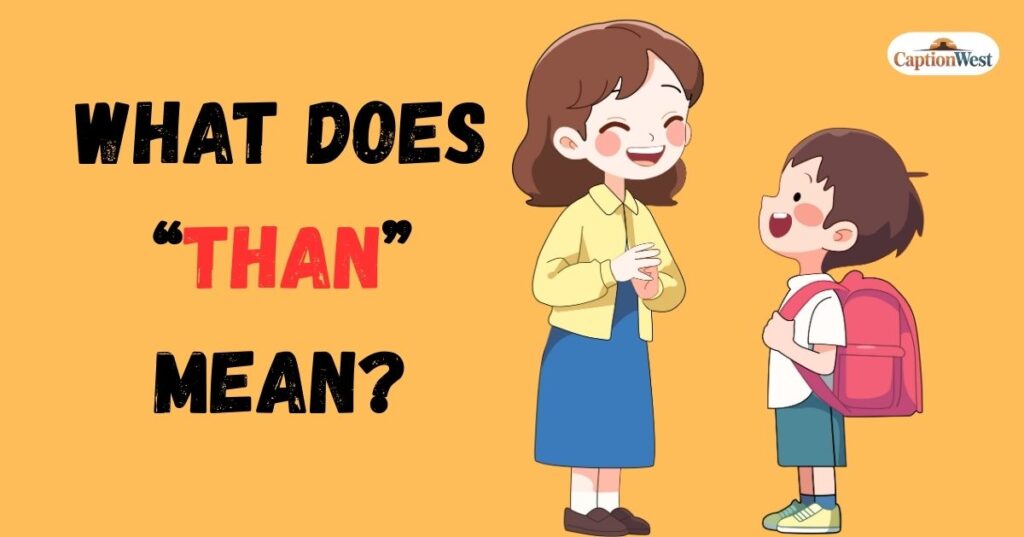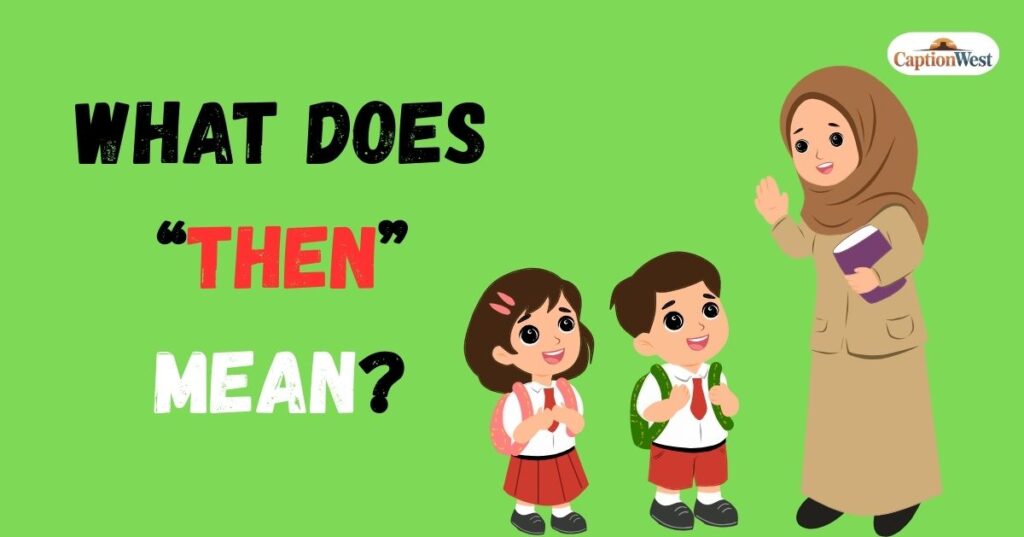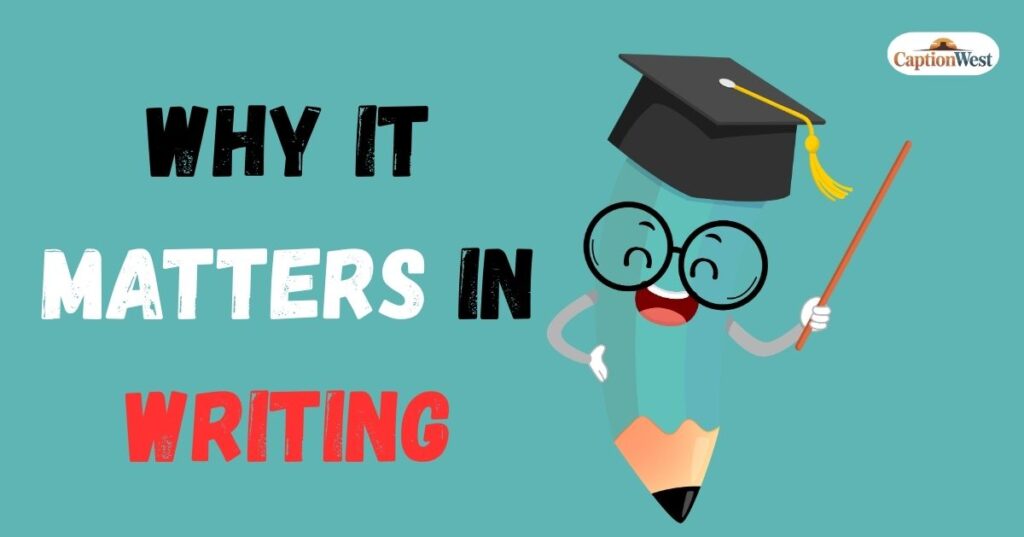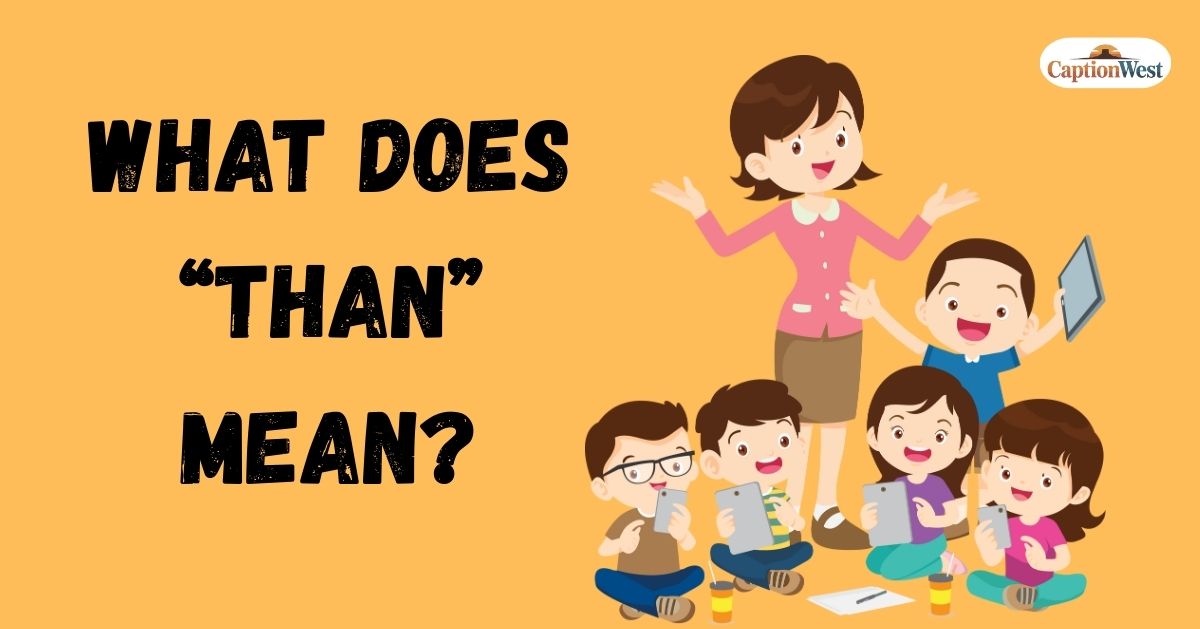English can be tricky, especially when it comes to words that look and sound almost the same. One of the most commonly confused words in English is the pair then and than. They are only one letter apart, yet their meanings are completely different. Many people accidentally swap them, which can lead to grammar mistakes in essays, emails, and even social media posts.
So, what is the difference between then and than? The short answer:
- Than is used for comparisons.
- Then refers to time, sequence, or consequences.
By the end of this article, you’ll know exactly when to use each word, see clear examples, and even learn some fun idioms to remember them forever.
Quick Summary – Then vs. Than in One Line
- Than = comparison (She is taller than me).
- Then = time/sequence (We ate dinner, then watched a movie).
If you can master this simple distinction, most of the confusion will disappear.
What Does “Than” Mean?

Definition
The word than is primarily used to compare two or more things. It introduces the second element in a comparison or highlights an alternative.
Grammar Role
- Conjunction – connects two parts of a comparison.
- Preposition – links nouns or pronouns for comparison.
Examples of Than in Sentences
- She is faster than her brother.
- I would rather walk than take the bus.
- Nothing feels better than a cozy blanket on a rainy day.
Idioms with “Than”
- Better late than never
- Easier said than done
- More fun than a barrel of monkeys
- More dead than alive
- More sinned against than sinning
These idioms show how than is deeply tied to comparison in English.
What Does “Then” Mean?

Definition
The word then refers to time, order, or consequence. It often answers the question “When?”.
Grammar Role
- Adverb – shows time (at that moment, afterward, next).
- Adjective – describes something as existing at a certain time (my then boss).
- Noun – refers to a specific moment (since then).
Examples of Then in Sentences
- We went shopping, and then we had lunch.
- If it rains, then we’ll stay inside.
- Back then, people didn’t have smartphones.
- She was my then roommate in college.
Idioms with “Then”
- Back then
- Now and then
- Even then
- If-then statements (common in logic and programming)
- Right then and there
These expressions highlight how then always connects to timing, sequence, or condition.
Common Grammar Mistakes with Then vs. Than
Since than and then look almost identical, many English learners and even native speakers mix them up. Here are the most frequent mistakes:
- Using “then” instead of “than” in comparisons
❌ She is taller then me.
✅ She is taller than me. - Using “than” instead of “then” for time
❌ We had dinner, than went home.
✅ We had dinner, then went home. - Assuming they are interchangeable
They are not! Then = time. Than = comparison.
Side-by-Side Comparison Chart
| Feature | Then | Than |
| Part of Speech | Adverb, adjective, noun | Conjunction, preposition |
| Meaning | Refers to time, sequence, or result | Used in comparisons, exceptions |
| Example Sentence | “He studied, then slept.” | “She is smarter than him.” |
| Idioms | “Back then,” “If…then” | “Better late than never,” “Easier said than done” |
This chart makes it easier to see the difference between then and than at a glance.
Easy Tricks to Remember the Difference
- Think of thEN: EN = timE → relates to time.
- Think of thAN: AN = compAre → relates to comparison.
- Quick Test: If you can replace the word with “at that time,” use then. If you can replace it with “in comparison with,” use than.
Why It Matters in Writing

Using the wrong word can make your writing look unprofessional or confusing. For example:
- A business email that says “Our product is better then others” sounds careless.
- A blog post that reads “We worked hard, than we rested” doesn’t make sense.
Whether you’re writing essays, work reports, or Instagram captions, getting the difference between then and than right will make your communication clearer and more polished.
Related Confusing Words in English
If you often confuse then and than, chances are you’ve struggled with other commonly confused words too. Some popular pairs include:
- They’re vs. There vs. Their
- Affect vs. Effect
- Who vs. Whom
- Further vs. Farther
Learning these will make you a more confident writer.
Final Recap – Mastering Then vs. Than
Let’s summarize everything:
- Than = comparison (She is smarter than him).
- Then = time/sequence (We talked, then left).
- Don’t mix them up—one letter makes a big difference.
- Remember the memory hacks: thEN = timE*, thAN = compAre.
- Check your writing carefully to avoid grammar mistakes.
With practice, the difference between then and than will become second nature.
Read Must : Grammar 101: The Difference Between Affect and Effect
FAQs
1. What is the easiest way to remember the difference between then and than?
If it’s about time, use then. If it’s about comparison, use than.
2. Can “than” ever mean “except”?
Yes, in some cases like “Other than milk, the fridge was empty.”
3. Is “different than” correct grammar?
Yes, though some prefer “different from,” both are accepted in modern English.
4. Can “then” be used as a noun?
Yes, as in “Since then, I have changed my routine.”
5. What are common idioms with then and than?
With than: better late than never, easier said than done.
With then: back then, now and then, right then and there.

